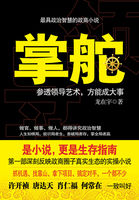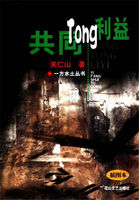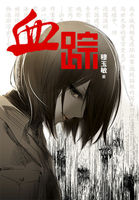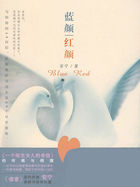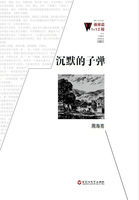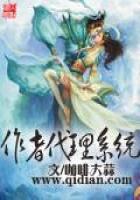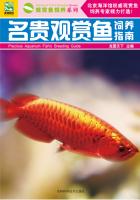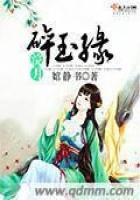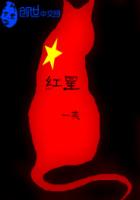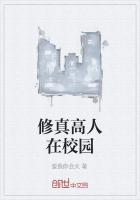And the shirts stood out from the chests likecuirasses! Everyone had just had his hair cut; ears stood out from the heads; theyhad been close-shaved; a few, even, who had had to get up before daybreak, andnot been able to see to shave, had diagonal gashes under their noses or cutsthe size of a three-franc piece along the jaws, which the fresh air en routehad enflamed, so that the great white beaming faces were mottled here and therewith red dabs.
The mairie was a mile and a half from thefarm, and they went thither on foot, returning in the same way after theceremony in the church. The procession, first united like one long colouredscarf that undulated across the fields, along the narrow path winding amid thegreen corn, soon lengthened out, and broke up into different groups thatloitered to talk. The fiddler walked in front with his violin, gay. withribbons at its pegs. Then came the married pair, the relations, the friends,all following pell-mell; the children stayed behind amusing themselves pluckingthe bell-flowers from oat-ears, or playing amongst themselves unseen. Emma's dress, too long, trailed a little on the ground; from time to timeshe stopped to pull it up, and then delicately, with her gloved hands, shepicked off the coarse grass and the thistledowns, while Charles, empty handed,waited till she had finished. Old Rouault, with a new silk hat and the cuffs ofhis black coat coveting his hands up to the nails, gave his arm to MadameBovary senior. As to Monsieur Bovary senior, who, heartily despising all thesefolk, had come simply in a frock-coat of military cut with one row ofbuttons-he was passing compliments of the bar to a fair young peasant. Shebowed, blushed, and did not know what to say. The other wedding guests talkedof their business or played tricks behind each other'sbacks, egging one another on in advance to be jolly. Those who listened could alwayscatch the squeaking of the fiddler, who went on playing across the fields. Whenhe saw that the rest were far behind he stopped to take breath, slowly rosinedhis bow, so that the strings should sound more shrilly, then set off again, byturns lowering and raising his neck, the better to mark time for himself. Thenoise of the instrument drove away the little birds from afar.
The table was laid under the cart-shed. On itwere four sirloins, six chicken fricassees, stewed veal, three legs of mutton,and in the middle a fine roast suckling pig, flanked by four chitterlings withsorrel. At the corners were decanters of brandy. Sweet bottled-cider frothedround the corks, and all the glasses had been filled to the brim with winebeforehand. Large dishes of yellow cream, that trembled with the least shake ofthe table, had designed on their smooth surface the initials of the newlywedded pair in nonpareil arabesques. A confectioner of Yvetot had beenintrusted with the tarts and sweets. As he had only just set up on the place,he had taken a lot of trouble, and at dessert he himself brought in a set dishthat evoked loud cries of wonderment. To begin with, at its base there was asquare of blue cardboard, representing a temple with porticoes, colonnades, andstucco statuettes all round, and in the niches constellations of gilt paperstars; then on the second stage was a dungeon of Savoy cake, surrounded by manyfortifications in candied angelica, almonds, raisins, and quarters of oranges;and finally, on the upper platform a green field with rocks set in lakes ofjam, nutshell boats, and a small Cupid balancing himself in a chocolate swingwhose two uprights ended in real roses for balls at the top.
Until night they ate. When any of them weretoo tired of sitting, they went out for a stroll in the yard, or for a gamewith corks in the granary, and then returned to table. Some towards the finishwent to sleep and snored. But with the coffee everyone woke up. Then they begansongs, showed off tricks, raised heavy weights, performed feats with theirfingers, then tried lifting carts on their shoulders, made broad jokes, kissedthe women. At night when they left, the horses, stuffed up to the nostrils withoats, could hardly be got into the shafts; they kicked, reared, the harnessbroke, their masters laughed or swore; and all night in the light of the moonalong country roads there were runaway carts at full gallop plunging into theditches, jumping over yard after yard of stones, clambering up the hills, withwomen leaning out from the tilt to catch hold of the reins.
Those who stayed at the Bertaux spent thenight drinking in the kitchen. The children had fallen asleep under the seats.
The bride had begged her father to be sparedthe usual marriage pleasantries. However, a fishmonger, one of their cousins(who had even brought a pair of soles for his wedding present), began to squirtwater from his mouth through the keyhole, when old Rouault came up just in timeto stop him, and explain to him that the distinguished position of hisson-in-law would not allow of such liberties. The cousin all the same did notgive in to these reasons readily. In his heart he accused old Rouault of beingproud, and he joined four or five other guests in a corner, who having, throughmere chance, been several times running served with the worst helps of meat,also were of opinion they had been badly used, and were whispering about theirhost, and with covered hints hoping he would ruin himself.
Madame Bovary, senior, had not opened her mouthall day. She had been consulted neither as to the dress of her daughter-in-lawnor as to the arrangement of the feast; she went to bed early. Her husband,instead of following her, sent to Saint-Victor for some cigars, and smoked tilldaybreak, drinking kirsch-punch, a mixture unknown to the company. This addedgreatly to the consideration in which he was held.
Charles, who was not of a facetious turn, didnot shine at the wedding. He answered feebly to the puns, doubles entendres,compliments, and chaff that it was felt a duty to let off at him as soon as thesoup appeared.
The next day, on the other hand, he seemedanother man. It was he who might rather have been taken for the virgin of theevening before, whilst the bride gave no sign that revealed anything. Theshrewdest did not know what to make of it, and they looked at her when shepassed near them with an unbounded concentration of mind. But Charles concealednothing. He called her “my wife”, tutoéd her, asked for her of everyone,looked for her everywhere, and often he dragged her into the yards, where hecould be seen from far between the trees, putting his arm around her waist, andwalking half-bending over her, ruffling the chemisette of her bodice with hishead.
Two days after the wedding the married pairleft. Charles, on account of his patients, could not be away longer. OldRouault had them driven back in his cart, and himself accompanied them as faras Vassonville. Here he embraced his daughter for the last time, got down, andwent his way. When he had gone about a hundred paces he stopped, and as he sawthe cart disappearing, its wheels turning in the dust, he gave a deep sigh.Then he remembered his wedding, the old times, the first pregnancy of his wife;he, too, had been very happy the day when he had taken her from her father tohis home, and had carried her off on a pillion, trotting through the snow, forit was near Christmas-time, and the country was all white. She held him by onearm, her basket hanging from the other; the wind blew the long lace of herCauchois headdress so that it sometimes flapped across his mouth, and when hetumed his head he saw near him, on his shoulder, her little rosy face, smilingsilently under the gold bands of her cap. To warm her hands she put them fromtime to time in his breast. How long ago it all was! Their son would have beenthirty by now. Then he looked back and saw nothing on the road. He felt drearyas an empty house; and tender memories mingling with the sad thoughts in hisbrain, addled by the fumes of the feast, he felt inclined for a moment to takea turn towards the church. As he was afraid, however, that this sight wouldmake him yet more sad, he went right away home.
Monsieur and Madame Charles arrived at Tostesabout six o'clock. The neighbors came to the windows tosee their doctor's new wife.
The old servant presented herself, curtsiedto her, apologised for not having dinner ready, and suggested that madame, inthe meantime, should look over her house.
Chapter 5
The brick front was just in a line with thestreet, or rather the road. Behind the door hung a cloak with a small collar, abridle, and a black leather cap, and on the floor, in a comer, were a pair ofleggings, still covered with dry mud. On the right was the one apartment,, thatwas both dining and sitting room. A canary yellow paper, relieved at the top bya garland of pale flowers, was puckered everywhere over the badly stretchedcanvas; white calico curtains with a red border hung crossways at the length ofthe window; and on the narrow mantelpiece a clock with a head of Hippocratesshone resplendent between two plate candlesticks under oval shades. On theother side of the passage was Charles's consultingroom, a little room about six paces wide, with a table, three chairs, and anoffice chair. Volumes of the Dictionary of Medical Science, uncut, but thebinding rather the worse for the successive sales through which they had gone,occupied almost along the six shelves of a deal bookcase. The smell of meltedbutter penetrated through the walls when he saw patients, just as in thekitchen one could hear the people coughing in the consulting room andrecounting their histories. Then, opening on the yard, where the stable was,came a large dilapidated room with a stove, now used as a wood-house, cellar,and pantry, full of old rubbish, of empty casks, agricultural implements pastservice, and a mass of dusty things whose use it was impossible to guess.
The garden, longer than wide, ran between twomud walls with espaliered apricots, to a hawthorn hedge that separated it fromthe field. In the middle was a slate sundial on a brick pedestal; four flowerbeds with eglantines surrounded symmetrically the more useful kitchen gardenbed. Right at the bottom, under the spruce bushes, was a curé in plaster reading his breviary.
Emma went upstairs. The first room was notfurnished, but in the second, which was their bedroom, was a mahogany bedsteadin an alcove with red drapery. A shell box adorned the chest of drawers, and onthe secretary near the window a bouquet of orange blossoms tied with whitesatin ribbons stood in a bottle. It was a bride'sbouquet; it was the other one's. She looked at it.Charles noticed it; he took it and carried it up to the attic, while Emmaseated in an arm-chair (they were putting her things down around her) thoughtof her bridal flowers packed up in a bandbox, and wondered, dreaming, whatwould be done with them if she were to die.
During the first days she occupied herself inthinking about changes in the house. She took the shades off the candlesticks,had new wallpaper put up, the staircase repainted, and seats made in the gardenround the sundial; she even inquired how she could get a basin with a jetfountain and fishes. Finally her husband, knowing that she liked to drive out,picked up a second-hand dogcart, which, with new lamps and splashboard instriped leather, looked almost like a tilbury.
He was happy then, and without a care in theworld. A meal together, a walk in the evening on the highroad, a gesture of herhands over her hair, the sight of her straw hat hanging from thewindow-fastener, and many another thing in which Charles had never dreamed ofpleasure, now made up the endless round of his happiness. In bed, in themorning, by her side, on the pillow, he watched the sunlight sinking into thedown on her fair cheek, half hidden by the lappets of her night-cap. Seen thusclosely, her eyes looked to him enlarged, especially when, on waking up, sheopened and shut them rapidly many times. Black in the shade, dark blue in broaddaylight, they had, as it were, depths of different colours, that, darker inthe centre, grew paler towards the surface of the eye. His own eyes lostthemselves in these depths; he saw himself in miniature down to the shoulders,with his handkerchief round his head and the top of his shirt open. He rose.She came to the window to see him off, and stayed leaning on the sill betweentwo pots of geranium, clad in her dressing gown hanging loosely about her.Charles, in the street buckled his spurs, his foot on the mounting stone, whileshe talked to him from above, picking with her mouth some scrap of flower orleaf that she blew out at him. Then this, eddying, floating, describedsemicircles in the air like a bird, and was caught before it reached the groundin the ill-groomed mane of the old white mare standing motionless at the door.Charles from horseback threw her a kiss; she answered with a nod; she shut thewindow, and he set off. And then along the highroad, spreading out its longribbon of dust, along the deep lanes that the trees bent over as in arbours,along paths where the corn reached to the knees, with the sun on his back andthe morning air in his nostrils, his heart full of the joys of the past night,his mind at rest, his flesh at ease, he went on, re-chewing his happiness, likethose who after dinner taste again the truffles which they are digesting.
Until now what good had he had of his life?His time at school, when he remained shut up within the high walls, alone, inthe midst of companions richer than he or cleverer at their work, who laughedat his accent, who jeered at his clothes, and whose mothers came to the schoolwith cakes in their muffs? Later on, when he studied medicine, and never hadhis purse full enough to treat some little work-girl who would have become hismistress? Afterwards, he had lived fourteen months with the widow, whose feetin bed were cold as icicles. But now he had for life this beautiful woman whomhe adored. For him the universe did not extend beyond the circumference of herpetticoat, and he reproached himself with not loving her. He wanted to see heragain; he turned back quickly, ran up the stairs with a beating heart. Emma, inher room, was dressing; he came up on tiptoe, kissed her back; she gave a cry.
He could not keep from constantly touchingher comb, her ring, her fichu; sometimes he gave her great sounding kisses withall his mouth on her cheeks, or else little kisses in a row all along her barearm from the tip of her fingers up to her shoulder, and she put him awayhalf-smiling, half-vexed, as you do a child who hangs about you.
Before marriage she thought herself in love;but the happiness that should have followed this love not having come, shemust, she thought, have been mistaken. And Emma tried to find out what onemeant exactly in life by the words felicity, passion, rapture, that had seemedto her so beautiful in books.
Chapter 6
She had read Paul and Virginia, and she haddreamed of the little bamboo-house, the nigger Domingo, the dog Fiddle, butabove all of the sweet friendship of some dear little brother, who seeks redfruit for you on trees taller than steeples, or who runs barefoot over thesand, bringing you a bird's nest.
When she was thirteen, her father himselftook her to town to place her in the convent. They stopped at an inn in the St.Gervais quarter, where, at their supper, they used painted plates that setforth the story of Mademoiselle de la Vallibre. The explanatory legends,chipped here and there by the scratching of knives, all glorified religion, thetendernesses of the heart, and the pomps of court.
Far from being bored at first at the convent,she took pleasure in the society of the good sisters, who, to amuse her, tookher to the chapel, which one entered from the refectory by a long corridor. Sheplayed very little during recreation hours, knew her catechism well, and it wasshe who always answered Monsieur le Vicaire's difficultquestions. Living thus, without every leaving the warm atmosphere of theclassrooms, and amid these pale-faced women wearing rosaries, with brass crosses,she was softly lulled by the mystic languor exhaled in the perfumes of thealtar, the freshness of the holy water, and the lights of the tapers. Insteadof attending to mass, she looked at the pious vignettes with their azureborders in her book, and she loved the sick lamb, the sacred heart pierced withsharp arrows, or the poor Jesus sinking beneath the cross he carries. Shetried, by way of mortification, to eat nothing a whole day. She puzzled herhead to find some vow to fulfil.
When she went to confession, she inventedlittle sins in order that she might stay there longer, kneeling in the shadow,her hands joined, her face against the grating beneath the whispering of thepriest. The comparisons of betrothed, husband, celestial lover, and eternalmarriage, that recur in sermons, stirred within her soul depths of unexpectedsweetness.
In the evening, before prayers, there wassome religious reading in the study. On week-nights it was some abstract ofsacred history or the Lectures of the Abbé Frayssinous,and on Sundays passages from the Genie du Christianisme, as a recreation. Howshe listened at first to the sonorous lamentations of its romantic melancholiesreechoing through the world and eternity! If her childhood had been spent inthe shop-parlour of some business quarter, she might perhaps have opened herheart to those lyrical invasions of Nature, which usually come to us onlythrough translation in books. But she knew the country too well; she knew thelowing of cattle, the milking, the ploughs. Accustomed to calm aspects of life,she turned, on the contrary, to those of excitement. She loved the sea only forthe sake of its storms, and the green fields only when broken up by ruins. Shewanted to get some personal profit out of things, and she rejected as uselessall that did not contribute to the immediate desires of her heart, being of atemperament more sentimental than artistic, looking for emotions, notlandscapes.
At the convent there was an old maid who camefor a week each month to mend the linen. Patronized by the clergy, because shebelonged to an ancient family of noblemen ruined by the Revolution, she dinedin the refectory at the table of the good sisters, and after the meal had a bitof chat with them before going back to her work. The girls often slipped outfrom the study to go and see her. She knew by heart the love songs of the lastcentury, and sang them in a low voice as she stitched away. She told stories,gave them news, went errands in the town, and on the sly lent the big girlssome novel, that she always carried in the pockets of her apron, and of whichthe good lady herself swallowed long chapters in the intervals of her work.They were all love, lovers, sweethearts, persecuted ladies fainting in lonelypavilions, postilions killed at every stage, horses ridden to death on everypage, sombre forests, heartaches, vows, sobs, tears and kisses, little skiffsby moonlight, nightingales in shady groves, “gentlemen” brave as lions, gentle as lambs, virtuous as no one ever was,always well dressed, and weeping like fountains. For six months, then, Emma, atfifteen years of age, made her hands dirty with books from old lendinglibraries. Through Walter Scott, later on, she fell in love with historicalevents, dreamed of old chests, guard-rooms and minstrels. She would have likedto live in some old manor-house, like those long-waisted chatelaines who, inthe shade of pointed arches, spent their days leaning on the stone, chin inhand, watching a cavalier with white plume galloping on his black horse fromthe distant fields. At this time she had a cult for Mary Stuart andenthusiastic veneration for illustrious or unhappy women. Joan of Arc, Heloise,Agnes Sorel, the beautiful Ferroniere, and Clemence Isaure stood out to herlike comets in the dark immensity of heaven, where also were seen, lost inshadow, and all unconnected, St. Louis with his oak, the dying Bayard, somecruelties of Louis XI, a little of St. Bartholomew'sDay, the plume of the Béarnais, and always theremembrance of the plates painted in honour of Louis XIV.
In the music class, in the ballads she sang,there was nothing but little angels with golden wings, madonnas, lagunes,gondoliers; -mild compositions that allowed her to catch a glimpse athwart theobscurity of style and the weakness of the music of the attractivephantasmagoria of sentimental realities. Some of her companions brought “keepsakes” given them as new year's gifts to the convent. These had to be hidden; it was quite anundertaking; they were read in the dormitory. Delicately handling the beautifulsatin bindings, Emma looked with dazzled eyes at the names of the unknownauthors, who had signed their verses for the most part as counts or viscounts.
She trembled as she blew back the tissuepaper over the engraving and saw it folded in two and fall gently against thepage. Here behind the balustrade of a balcony was a young man in a short cloak,holding in his arms a young girl in a white dress wearing an alms-bag at herbelt; or there were nameless portraits of English ladies with fair curls, wholooked at you from under their round straw hats with their large clear eyes.Some there were lounging in their carriages, gliding through parks, a greyhoundbounding along in front of the equipage driven at a trot by two midgetpostilions in white breeches. Others, dreaming on sofas with an open letter,gazed at the moon through a slightly open window half draped by a blackcurtain. The na?ve ones, a tear on their cheeks, were kissing doves through thebars of a Gothic cage, or, smiling, their heads on one side, were plucking theleaves of a marguerite with their taper fingers, that curved at the tips likepeaked shoes. And you, too, were there, Sultans with long pipes recliningbeneath arbours in the arms of Bayadbres; Djiaours, Turkish sabres, Greek caps;and you especially, pale landscapes of dithyrambic lands, that often show us atonce palm trees and firs, tigers on the right, a lion to the left, Tartarminarets on the horizon; the whole framed by a very neat virgin forest, andwith a great perpendicular sunbeam trembling in the water, where, standing outin relief like white excoriations on a steel-grey ground, swans are swimmingabout.
And the shade of the argand lamp fastened tothe wall above Emma's head lighted up all thesepictures of the world, that passed before her one by one in the silence of thedormitory, and to the distant noise of some belated carriage rolling over theBoulevards.
When her mother died she cried much the firstfew days. She had a funeral picture made with the hair of the deceased, and, ina letter sent to the Bertaux full of sad reflections on life, she asked to beburied later on in the same grave. The goodman thought she must be ill, andcame to see her. Emma was secretly pleased that she had reached at a firstattempt the rare ideal of pale lives, never attained by mediocre hearts. Shelet herself glide along with Lamartine meanderings, listened to harps on lakes,to all the songs of dying swans, to the falling of the leaves, the pure virginsascending to heaven, and the voice of the Eternal discoursing down the valleys.She wearied of it, would not confess it, continued from habit, and at last wassurprised to feel herself soothed, and with no more sadness at heart thanwrinkles on her brow.
The good nuns, who had been so sure of hervocation, perceived with great astonishment that Mademoiselle Rouault seemed tobe slipping from them. They had indeed been so lavish to her of prayers,retreats, novenas, and sermons, they had so often preached the respect due tosaints and martyrs, and given so much good advice as to the modesty of the bodyand the salvation of her soul, that she did as tightly reined horses; shepulled up short and the bit slipped from her teeth. This nature, positive inthe midst of its enthusiasms, that had loved the church for the sake of theflowers, and music for the words of the songs, and literature for its passionalstimulus, rebelled against the mysteries of faith as it grew irritated bydiscipline, a thing antipathetic to her constitution. When her father took herfrom school, no one was sorry to see her go. The Lady Superior even thoughtthat she had latterly been somewhat irreverent to the community.
Emma, at home once more, first took pleasurein looking after the servants, then grew disgusted with the country and missedher convent. When Charles came to the Bertaux for the first time, she thoughtherself quite disillusioned, with nothing more to learn, and nothing more tofeel.
But the uneasiness of her new position, orperhaps the disturbance caused by the presence of this man, had sufficed tomake her believe that she at last felt that wondrous passion which, till then,like a great bird with rose-coloured wings, hung in the splendour of the skiesof poesy; and now she could not think that the calm in which she lived was thehappiness she had dreamed.

